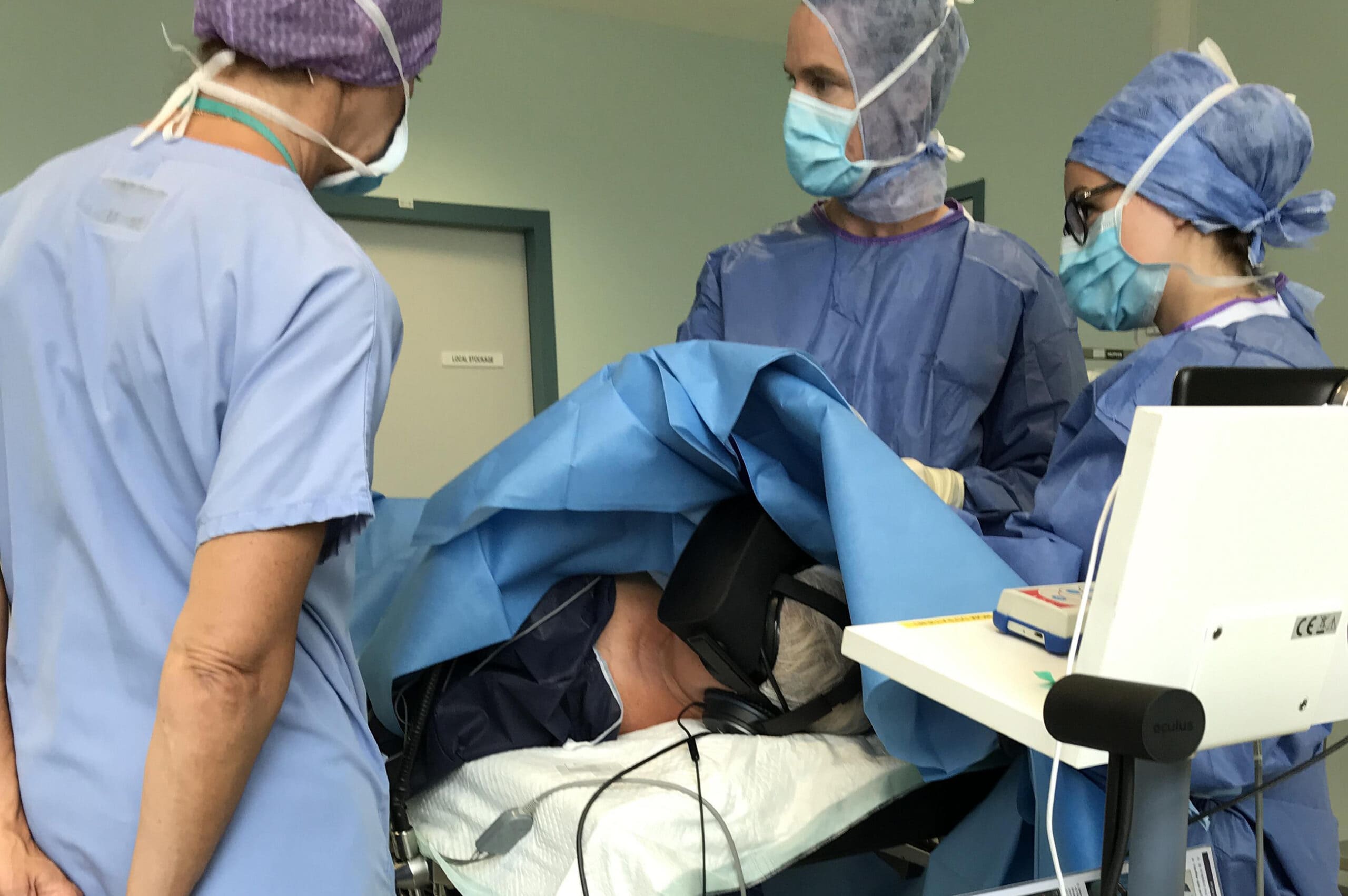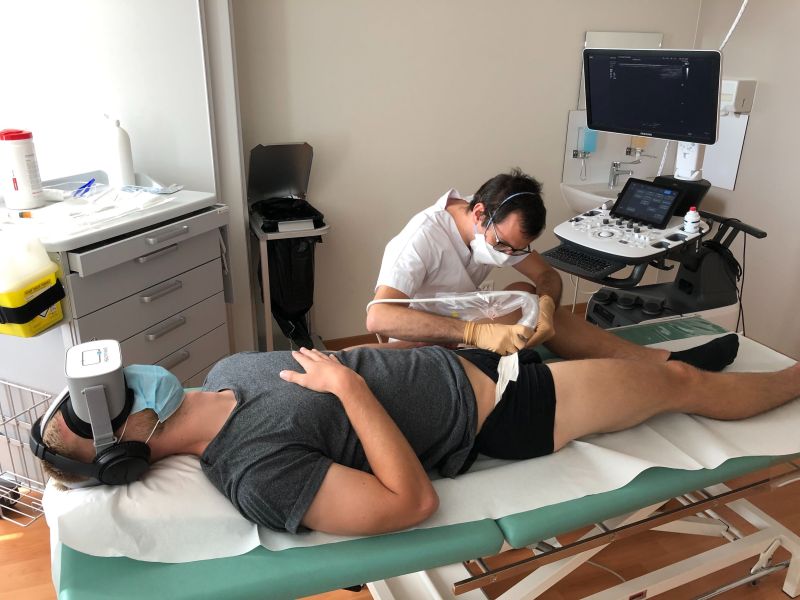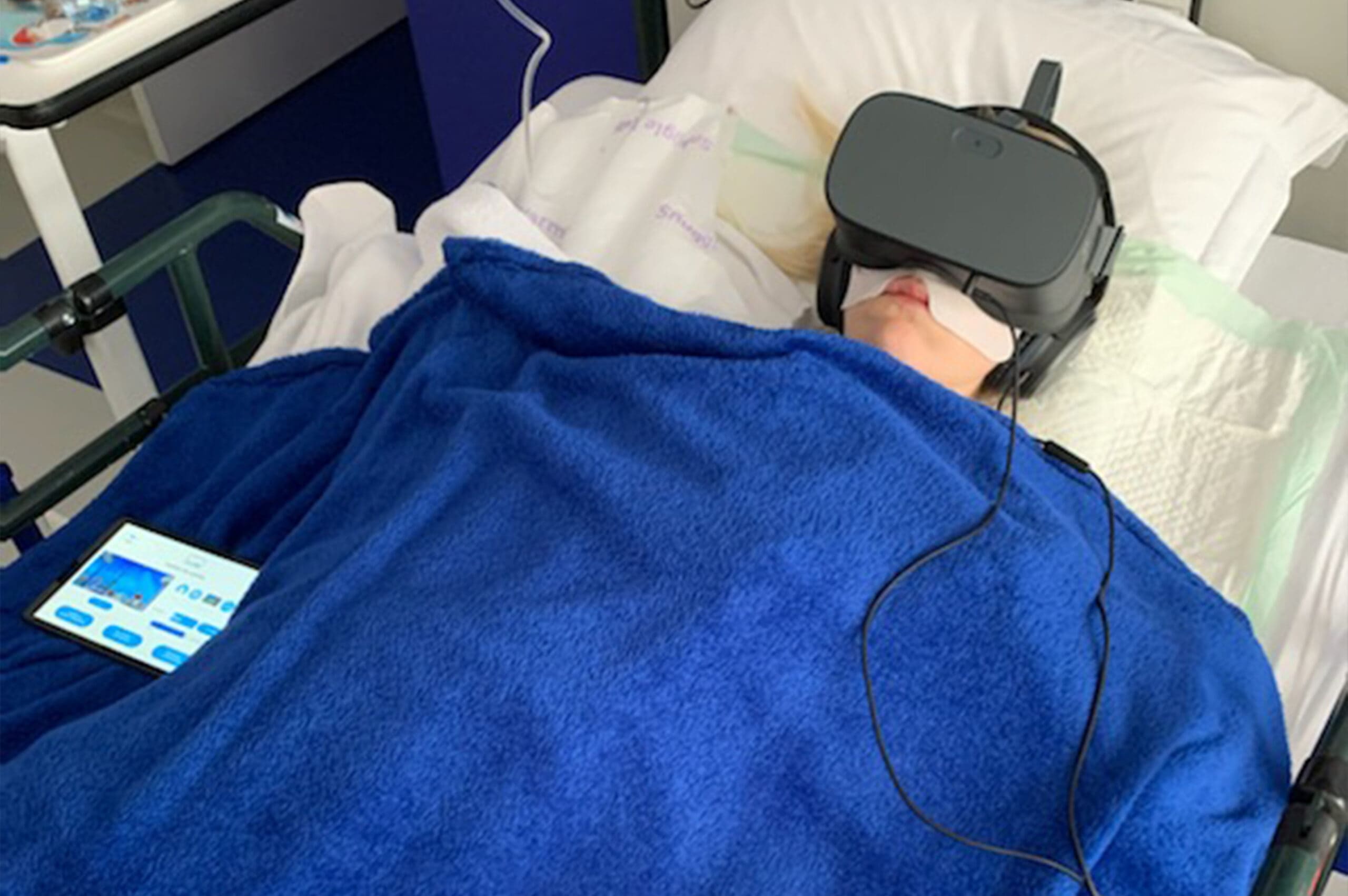
In 2015 1 million French people said they had already undergone plastic surgery 40% of the population is considering surgery in the near future (survey conducted by Opinionway for the Champs-Élysées clinic). Medical procedures in plastic surgery include, among others: Variety of operations from breast reconstruction to hair implants to hand and body surgery. Despite the large number of these operations in France, some patients are afraid of the operating room, have contraindications to general anesthesia or are afraid of the upcoming treatment. So, how are you? Reduce stress and pain before, during and after an operation? In this article we explain the benefits of Combination of virtual reality and plastic surgery to relieve patients.
1. Promote relaxation and relieve stress in patients
Surgery is rarely considered with a calm mind. News, movies and books have often made us think about drama Hospital stories, so much so that patients face possible complications upon admission. However, this train of thought disrupts the body and sends a warning message: “We are not safe.”
The Feeling of discomfort manifests itself as nervous emotions, anxiety, muscle contractions or cold sweats. These tensions are not only uncomfortable, they also make the operation more difficult. Furthermore, the Hospital environment unintentionally reinforces this dynamic through the smells and sounds that remind us of the circumstances of the operation. So how can we relieve an agitated mind that fears the worst?
If virtual reality cannot change the cultural legacy that associates surgery with a dangerous ordeal, it can change the perception of the fear-provoking environment. Instead of concentrating on the machines around him, the mechanical noises, the upcoming or ongoing procedure, the patient is immersed in a situation soothing world that is intended to provide relaxation.
The script and direction are based on several principles to create a deep calm and… multisensory experience:
By gaining serenity and comfort during treatment, the patient achieves better balance Facilitating medical work and the work of nursing staff.
The L. Ganry et al. conducted pilot study on maxillofacial surgery and plastic surgery. show the relaxing action virtual reality in dealing with patients’ fears. Immersions are therefore represented as follows:
“has Non-invasive Means to reduce pre-operative stress levels, without side effects and without the need for additional medical or paramedical staff.”

2. Pain limitation through virtual reality in plastic surgery
The more we focus on our perception, the more space it takes up, especially when it is associated with pain. Our senses become so heightened that we can no longer feel anything except the unpleasant feeling. Virtual reality serves this purpose Let’s separate ourselves from this discomfort and move to a safe environment that does not evoke or evoke the contractions, injury, or discomfort felt. How does it work?
Virtual reality uses a recognized method for pain relief: the Distraction of attention. Numerous studies have demonstrated the value of this non-medical technique in reducing the sensory, cognitive, behavioral and psychological components of pain. Immersions respond to these biases through a proposal that includes the following multiple sensory dimensions.
HAS Study by Hoffman and colleagues assessed patients’ responses to a painful stimulus using functional magnetic resonance imaging. The results were clear: immersion in virtual reality led to one Reduction of more than 50% this perception in five areas of the brain. In our clinical research In the area you will find numerous other publications that testify to this Effectiveness of virtual reality in various applications.
3. Reducing the need for general anesthesia during surgery
Sometimes Plastic surgery operations require the use of general anesthesia. However, pharmacological analgesics are not without side effects and some patients may not tolerate their administration. Others simply prefer it Limit the use of general anesthesia due to various fears such as fear of not waking up or fear of experiencing something unpleasant symptoms when waking up (nausea, vomiting, headache, etc.).
Therefore, patients who have contraindications to general anesthesia or who wish to forego it can still benefit from cosmetic and reconstructive surgery analgesic effect of virtual reality. On the other hand, patients remain conscious and lucid throughout the procedure, which makes treatment easier postoperative recovery. On the hospital side, shortening the rest period allows for a shorter stay in the hospital recovery room and an increase in number Patients are admitted and operated on.
thanks to him ergonomic designThe device is practical to use and does not restrict the medical team during their procedures, allowing the patient to move freely. In addition, communication remains possible at all times to create a safe space adapted to the different treatments:
- Hand surgery: Dupuytren’s disease, microsurgery, tendon surgery, cysts, peripheral nerve surgery (carpal, ulna, radial), osteoarthritis, deformities or malformations;
- Breast surgery: reduction, symmetry, augmentation, breast reconstruction after cancer;
- Facial surgery: liposuction, liposculpture, post-pregnancy corrections, weight loss for obesity;
- Hair surgery: hair implants.
Chrystelle Hautecoeur, nurse at Eure-Seine Hospital Center, explains the benefits she saw after using the Healthy Mind device:
“The virtual reality glasses made it possible Modification of painful perception for several patients. The innovative approach was appreciated as it aroused both interest and curiosity. Its use gave confidence to seeking patients non-drug options to relieve their pain.”

4. Reduce patient’s postoperative pain
Because Immersions reduce the use of anxiolytic and analgesic treatments Before surgery, patients experience fewer complications afterwards. Symptoms such as vomiting and nausea subside and make treatment easier postoperative recovery.
tea Virtual reality solution “Healthy Mind”. can also accompany the patient Follow-up appointments where painful procedures such as the removal of staples or bandages are often performed. Thanks to a proven relaxing and calming effect, the immersions guarantee a calmer treatment.
The virtual reality device maintains the connection between surgeon and patient as communication remains possible during immersion. In this way, a discomfort, a request or a concern can be expressed at any time. Because the patient is relaxed during surgery, interactions are higher quality and the patient can be more attentive throughout the treatment involved in the surgical process.
Virtual reality is one therapeutic agent without side effects for plastic surgery, to relieve pain and anxiety. tea analgesic effect The immersion reduces the use of drug treatments and thus makes it easier postoperative recovery. Thanks to the functionalities adapted for patients and caregivers, the Healthy Mind solution is perfectly integrated into the medical workflow. Since a demonstration is often worth more than a thousand words, we invite you to join us see the device for yourself. If you have any questions about our equipment, please contact us Contact our team.





